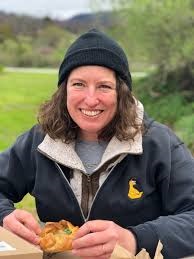 2025 CCTM Learning Institute 2025 CCTM Learning Institute
Every Learner Counts: Supporting Diverse Learners in Math
Location: Adams 12 Five Star Schools Conference Center
Dates: Thursday, June 12th 12:30pm-7:30pm and Friday, June 13th 7:30am-3:30pm
This is an incredible opportunity to earn professional development hours towards CLDE licensure requirements, specifically Culturally and Linguistically Diverse (CLD) Education and Behavioral Health or Special Education.
Featured Speakers:

Julianne Foxworthy Gonzalez, Ph.D. in Mathematics Education
Julianne has over twenty years of experience in education, focusing on creating equitable classrooms that prioritize student voices and safety. She has partnered with the English Learner Success Forum to enhance instructional materials for multilingual learners and is a co-author on key criteria for instructional success. Currently, as a postdoctoral research fellow, she works on improving mathematical experiences for racially minoritized students in Dual Language Immersion schools, emphasizing educational equity and discourse in STEM.

Joleigh Honey is a mathematics educator with over 30 years of experience, serving in various roles, including classroom teacher, academic coach, supervisor, and equity specialist in Utah. She is an accomplished author focused on transforming math education through asset-based perspectives and collaborates with state leaders to enhance student opportunities in mathematics. Honey also provides professional development for educators, advocating for the engagement and success of all students, particularly those with disabilities, in meaningful mathematics.
Session Titles and Descriptions
Julianne Foxworthy Gonzalez's Sessions
This strand will focus on Supporting Language Development in the Mathematics Classrooms (connections to CLDE professional learning hours will be provided).
Let’s Talk About Math!
How is language development connected to mathematics learning? What role can math teachers play in language-rich learning environments in which all students’ ideas are surfaced, collaboratively examined, and leveraged for learning?
Routines to Scaffold Language & Math (elementary and secondary specific sessions will be available)
In this session we will explore Mathematical Language Routines as an instructional strategy to support students in making sense of mathematical content. You will leave with routines you can introduce on day one that will help your multilingual learners engage and thrive.
The Power of Revision (elementary and secondary specific sessions will be available)
In this session we discuss the important role that feedback and revision play in language and mathematics learning. You will leave with ideas for creating meaningful opportunities for speaking, listening, reading, and writing that will make your students’ mathematical thinking stronger and clearer.
Joleigh Honey’s Sessions
This strand will focus on Supporting students with learning and thinking difference in the Mathematics Classrooms.
Leveraging Asset-Based Language and Routines in Mathematics Education
Asset-based perspectives recognize that students bring significant strengths, talents, and resources to the mathematics classroom. Enacting asset-based pedagogical moves can be challenging, particularly when systems perpetuate deficit-based views on students’ mathematical learning. This session provides strategies to enact asset-based approaches to teaching, focusing on language and classroom routines.
Seven Strategies to Transform Outcomes for Students with Disabilities (elementary and secondary specific sessions will be available)
In this session, we will uncover a new way of supporting students with disabilities (as well as all students) through seven easy-to-implement strategies. Results: increase student confidence and achievement, reduce teacher stress, and elevate the joy of teaching.
Transform Your Elementary Math Class via Asset-based Instructional Routines (elementary and secondary specific sessions will be available)
Which instructional routines do you implement regularly? When are they most effective (or less effective)? We will have fun in this session! First, we will engage in a math task and then share current routines. We will end with you having new strategies to make your go-to routines even more effective.
|